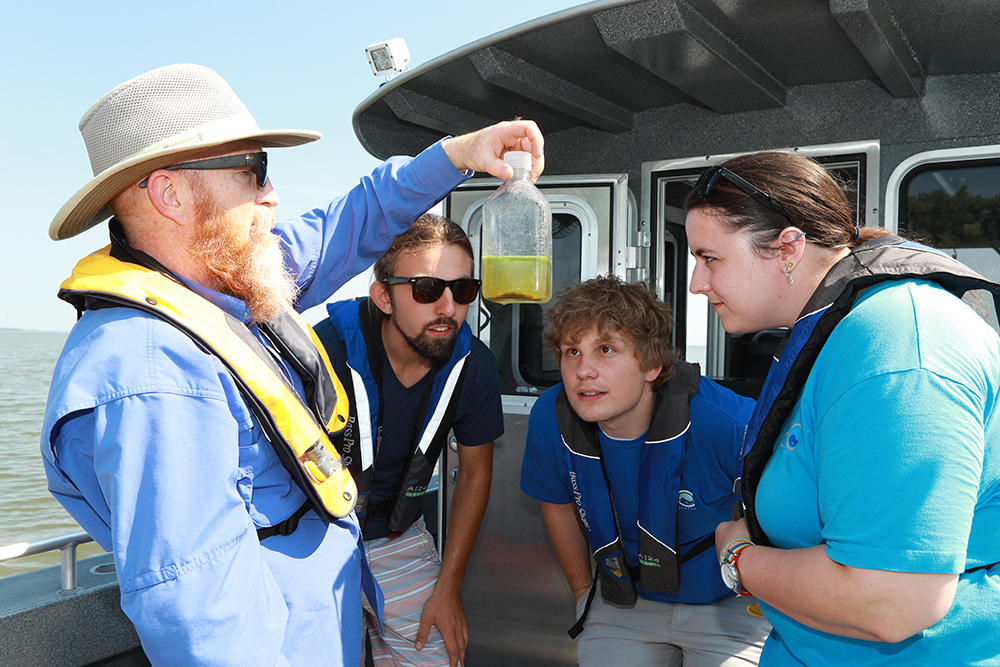Bachelor of Science in Biology - Ecology and Organismal
|
What to expect when you graduate?The B.S. degree provides an excellent basis for graduate work in environmental sciences, as well as a solid foundation for employment in public and private sectors. You'll go on to find a successful career in a profession such as climate change analyst; fish and game warden; park naturalist; science teacher; water resource specialist; wildlife biologist; or zoologist.University Core and General Requirements:Requirements specific to B.S. in Biology (ecology concentration/BIOM) major: For prior calendar year requirements, view past UToledo Catalogs Admission Requirementsfor Direct-From-High-School and First-Time Freshman At all times, students are encouraged to consult their degree audit and their advisor. |
||
College & University Requirements |
||
|
1. Orientation (NSM 1000) - 2 hours
2. English Composition I and II with a C or better. 3. Distributive Requirements
4. Multicultural Requirement
5. WAC Requirement
6. Pass at least 64 hours of courses 2000 and above, of which at least 32 must be at the 3000 or 4000 level. 7. Maintain at least a 2.0 grade point average overall, as well as in the major field. 8. The Bachelor of Science degree in Biology with a concentration in Ecology and Organismal Biology requires a minimum of 120 hours. |
||
For more information, contact: |
||
|
Dr. Von Sigler, Advisor, B.S. Biology Program Phone: (419) 530-2897 |



 Biology - the study of life and living organisms - is the perfect foundational degree
for a variety of careers. A degree in biology-ecology/organismal can prepare you for immediate employment in
fields like conservation or zoology. It also can set you on the right track for veterinary
school, medical school and other professional or graduate programs.
Biology - the study of life and living organisms - is the perfect foundational degree
for a variety of careers. A degree in biology-ecology/organismal can prepare you for immediate employment in
fields like conservation or zoology. It also can set you on the right track for veterinary
school, medical school and other professional or graduate programs.